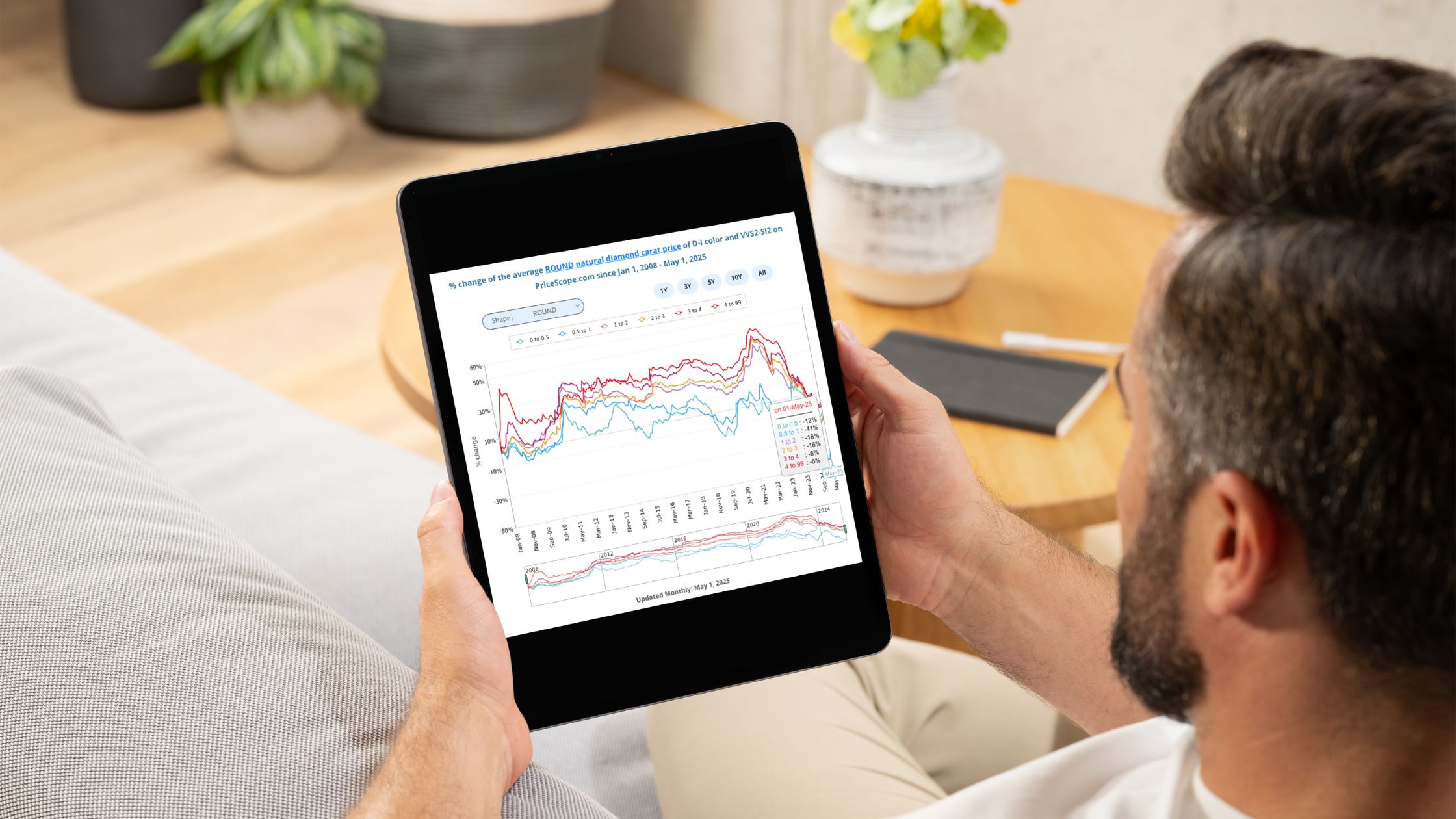echelon6
Shiny_Rock
- Joined
- Jul 5, 2007
- Messages
- 265
I was thinking about the tradeup policies some vendors offer, and one major thing consumers probably do not account for are the effects of inflation.
I did some math and basically came up with this formula:
T(t) = P(1-r(1+i)^t) where: T(t) is the value of the tradeup policy if exercised at time t, P is original purchase price, r is the % of true market value you''d receive if you tried selling the stone yourself, t is time in years, i is inflation rate.
Basically if we let r = 75% (i.e. you''d probably get 75% of what your stone is worth if you sold it yourself), i = 3% (a good estimate of long term US inflation), your trade-up policy is worthless after 9.73 years (i.e. you''d be better off selling the stone yourself after this time)
If we pump up the inflation to 4%, the same tradeup policy is worthless after 7.33 years. (and worth VERY little as time approaches 7.33 yrs)
Seeing as how most people tend to tradeup during milestone anniversary years, such as 10 yrs, 15 yrs, etc, I think if you do the math, you can conclude that the tradeup policy is pretty much worthless in the long term.
Its funny to see people asking "will so-and-so vendor still be around in 10-15 yrs?", when in fact even if they''re dead by then, you''re better off selling the stone yourself even at the huge loss, getting the cash, and putting it into the upgrade.
I guess the tradeup policy really only appeals to consumers who don''t yet understand these effects, or plan on exercising the policy in the short term (in which case you''re probably better off just saving up for the bigger stone in the first place)
I think vendors who actually do want to provide a practical tradeup policy should make it inflation indexed, so the policy amount goes up with inflation.
I did some math and basically came up with this formula:
T(t) = P(1-r(1+i)^t) where: T(t) is the value of the tradeup policy if exercised at time t, P is original purchase price, r is the % of true market value you''d receive if you tried selling the stone yourself, t is time in years, i is inflation rate.
Basically if we let r = 75% (i.e. you''d probably get 75% of what your stone is worth if you sold it yourself), i = 3% (a good estimate of long term US inflation), your trade-up policy is worthless after 9.73 years (i.e. you''d be better off selling the stone yourself after this time)
If we pump up the inflation to 4%, the same tradeup policy is worthless after 7.33 years. (and worth VERY little as time approaches 7.33 yrs)
Seeing as how most people tend to tradeup during milestone anniversary years, such as 10 yrs, 15 yrs, etc, I think if you do the math, you can conclude that the tradeup policy is pretty much worthless in the long term.
Its funny to see people asking "will so-and-so vendor still be around in 10-15 yrs?", when in fact even if they''re dead by then, you''re better off selling the stone yourself even at the huge loss, getting the cash, and putting it into the upgrade.
I guess the tradeup policy really only appeals to consumers who don''t yet understand these effects, or plan on exercising the policy in the short term (in which case you''re probably better off just saving up for the bigger stone in the first place)
I think vendors who actually do want to provide a practical tradeup policy should make it inflation indexed, so the policy amount goes up with inflation.







300x240.png)